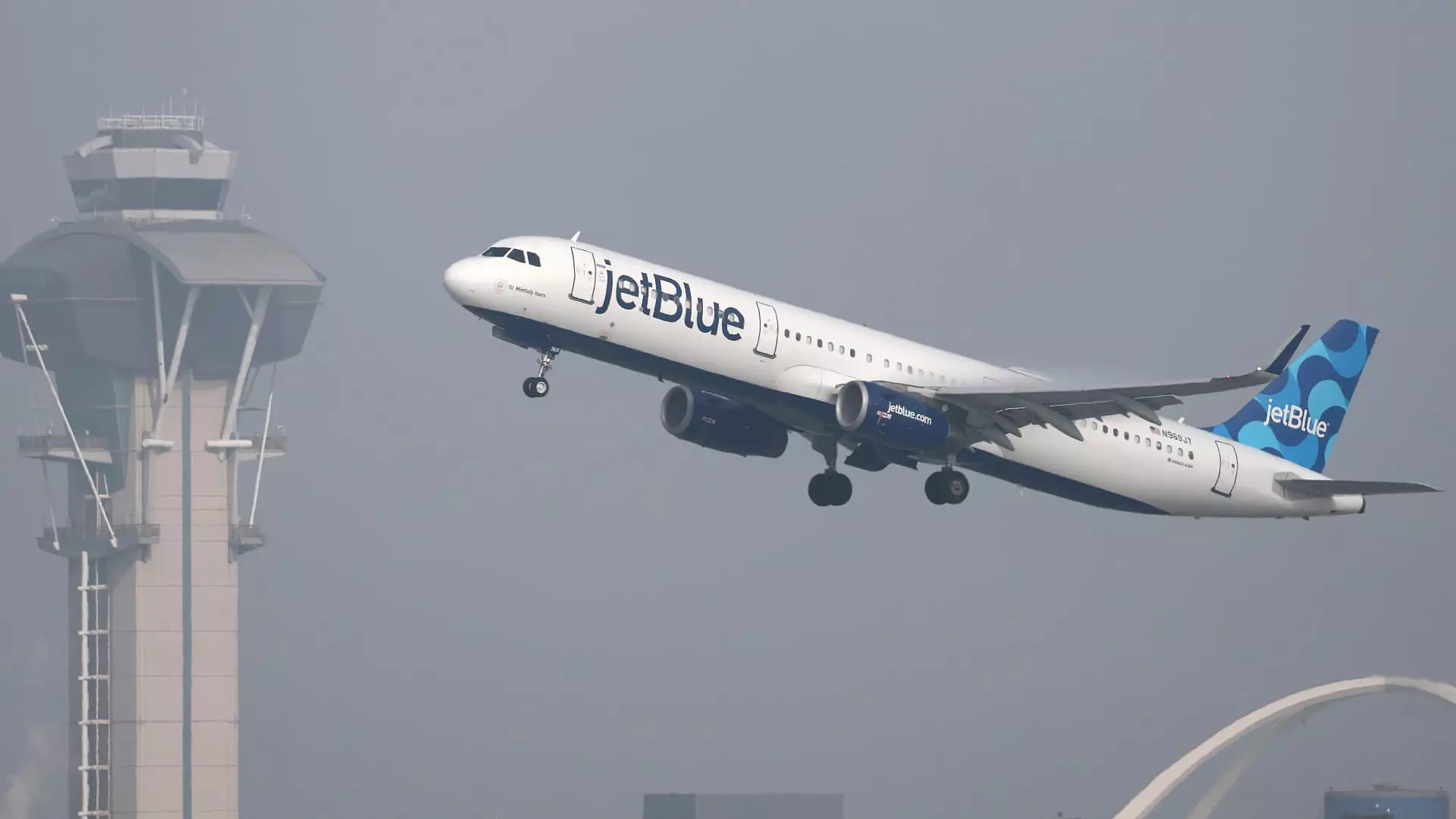JetBlue Airways is navigating a tumultuous landscape characterized by judicial roadblocks and a pressing need for strategic partnerships. Following adverse court rulings against two significant ventures—its alliance with American Airlines in the Northeast and the failed acquisition of Spirit Airlines—JetBlue finds itself at a critical juncture. The airline’s president, Marty St. George, revealed in a recent industry conference that they are currently in discussions with “multiple airlines” to identify a more favorable partnership opportunity. This sentiment reflects JetBlue’s urgency to bolster its competitive stance against industry giants such as Delta, American, and United Airlines.
The recent rulings not only thwarted JetBlue’s ambitions but also underscored the increasing scrutiny that airline mergers and partnerships face from regulatory bodies. The decision to block the American Airlines alliance was grounded in concerns over potential anticompetitive behavior in the already concentrated Northeast market. Additionally, the rejection of acquiring Spirit Airlines, which entered Chapter 11 bankruptcy last year, emphasizes the challenges startups face even in pursuing seemingly advantageous opportunities. JetBlue’s leadership appears to recognize that these setbacks necessitate a more calculated approach in seeking partnerships that enhance its market position without infringing on antitrust laws.
JetBlue has articulated a clear need for partnerships as a means to compete effectively in a market dominated by larger airlines with more extensive loyalty programs and global networks. St. George’s comments point to a significant gap in JetBlue’s current offerings, particularly regarding its loyalty program. Frequent flyer points with JetBlue lag behind those of major competitors, making it imperative for the airline to enhance its customer value propositions. Establishing new alliances could potentially fill this void, allowing JetBlue customers to leverage a broader range of benefits and earn perks in ways that are currently limited.
JetBlue’s commitment to pursuing strategic partnerships indicates a proactive approach to growth in an unforgiving market. In a dynamic airline industry where consumer expectations evolve rapidly, enhancing the flight experience through additional benefits is crucial for smaller carriers like JetBlue. The search for new partnerships could lead to collaborations that not only expand JetBlue’s operational capabilities but also enrich customer journeys. For instance, access to international routes and a more robust rewards system could greatly enhance its attractiveness to travelers.
Despite the setbacks faced by JetBlue, the ongoing conversations with other airlines signal a resilient spirit and an acknowledgment of the need for adaptation. The airline’s pursuit of strategic partnerships offers a glimpse into a broader strategy aimed at securing a more competitive edge and enhancing customer satisfaction. While the roadblocks present significant challenges, JetBlue’s management remains committed to finding innovative solutions that will redefine the airline’s trajectory and fortify its position within a fiercely competitive marketplace. The next steps in their partnership discussions could very well shape the future of the airline and its ongoing quest for relevancy in an ever-changing industry.

